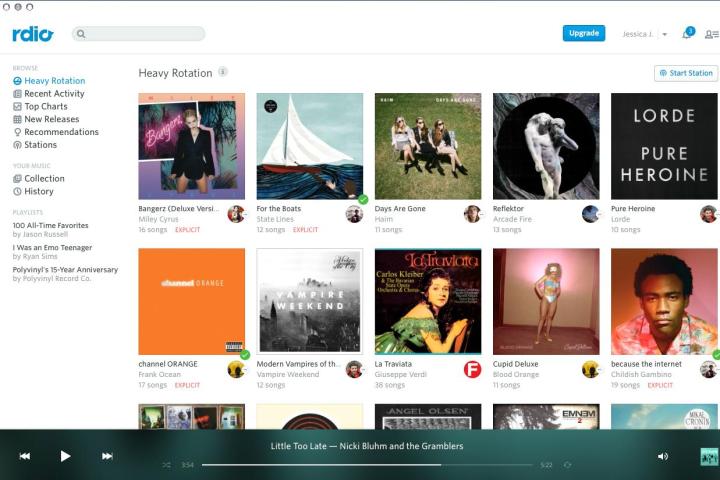
Less than 24 hours after Spotify announced it was removing time restrictions for Web users of its music-streaming service, rival Rdio has piped up to say it’s doing something pretty darn similar.
The San Francisco-based start-up announced the change to its service in a blog post Thursday, though for now only US-based users will benefit.
Before now, Rdio offered users a free, ad-supported service, but only for a limited amount of time. Now those restrictions have been lifted, giving music fans unlimited, free access to its entire library of some 20 millions tracks.
There is a catch, but it’s a small one. Just as with Spotify’s recently announced unlimited-listening service for Web, Rdio users will have to put up with “short and sweet” ads comprising “a mix of new feature announcements, messages from partner brands, notifications about exclusive content, and other helpful tips.”
If such in-stream messaging really gets your goat, a $10 payment to Rdio will banish them from the service – so long as you keep the payment rolling month to month, that is.
The move comes just hours after rival service Spotify announced it was ditching its Web-based 10-hours-a-month-for-free restriction, offering users in all of its 55 countries and territories the chance to enjoy its catalog of 20 million tracks without limitations, though as with Rdio, the service incorporates ads.
Both companies in recent months also began offering free options for their respective mobile offerings, with the recent service changes a measure of just how competitive the music-streaming space is becoming.
Launched in August 2010 by Skype co-creator Janus Friis, Rdio has been expanding fast around the world over the last 12 months, with launches in 27 new countries and territories, bringing the total to 51. At the start of 2013, 30 percent of its active users came from locations outside the US, though by the end of the year this had grown to 57 percent.
It hasn’t all been plain sailing for Rdio, however, with the company in November announcing a number of money-saving job cuts, while last month it shuttered its movie and TV spin-off Vdio after failing to make any impact in a tough market already occupied by giants such as Netflix, Hulu, and Amazon.


